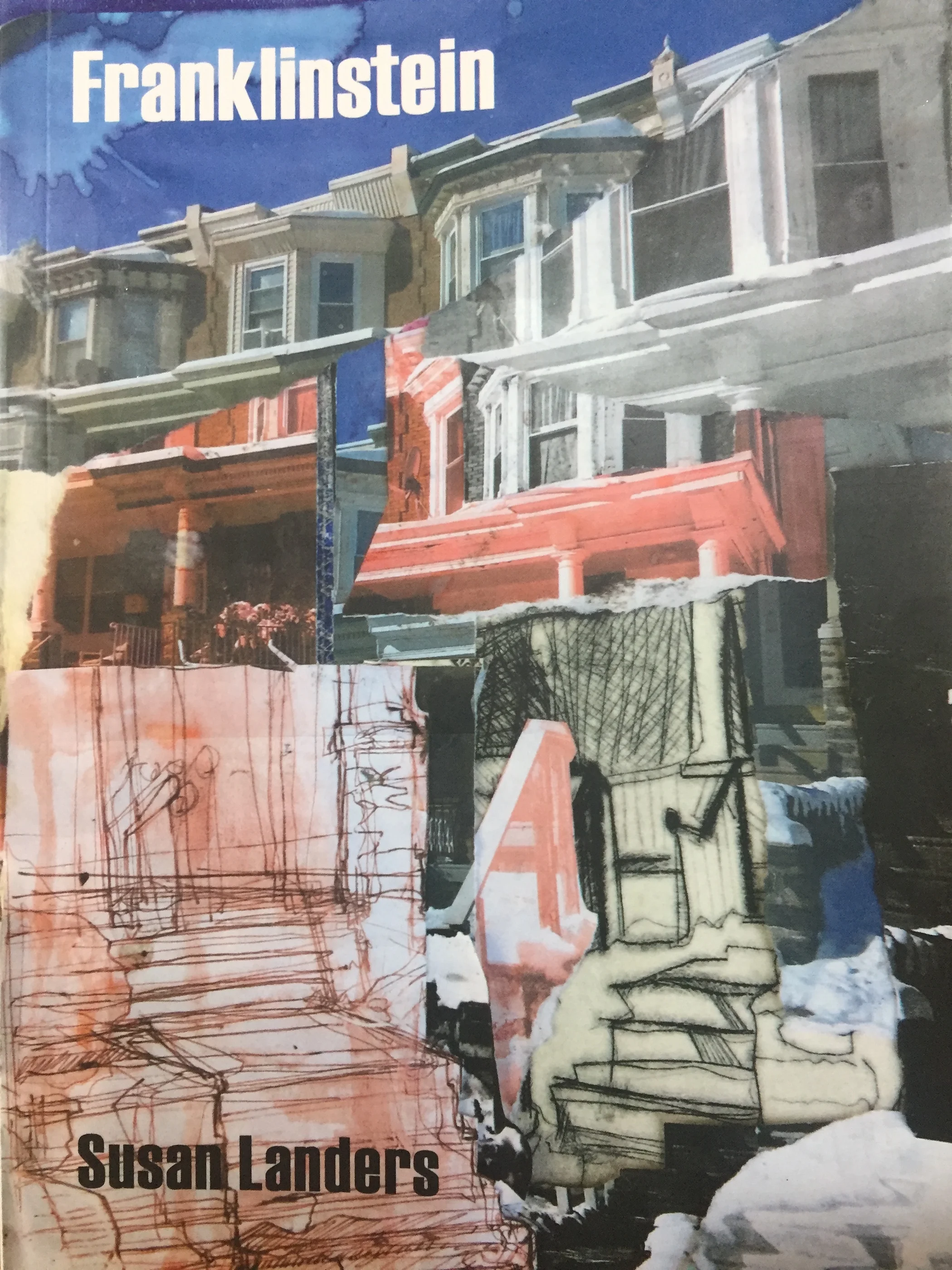Books by Sue Landers
What to Carry Into the Future
Roof Books, March 2025
What to Carry Into the Future is an unconditional love letter to New York City. Emerging from the poet’s quest to ride every NYC subway line end to end, the collection charts the continuous aftermath of catastrophe—9/11, Sandy, COVID, etc.—alongside the city’s many pleasures—the Wonder Wheel, tulip trees, strangers on a train breaking out into song.
Franklinstein
Poetry. Literary Nonfiction. Roof Books, 2016
This hybrid genre collection of poetry and prose tells the story of one Philadelphia neighborhood, Germantown—a historic place wrestling with legacies of colonialism, racism, and capitalism. Drawing from interviews, historical research, and two divergent but quintessential American texts (The Autobiography of Benjamin Franklin and Gertrude Stein's The Making of Americans), Landers' Franklinstein is a monster readers have not encountered before.
"FRANKLINSTEIN is a church of stained glass truth-telling."—Yolanda Wisher
"In her study of Germantown, Landers derives a poetics of urban history, of being from, really from, a place—Philadelphia—that cuts itself into your skin."—Simone White
"This verse memoir, prose elegy, and documentary expose will remind some readers of Rukeyser's The Book of the Dead, which, we must recall, is also a book of the living."—Tyrone Williams
Reviews
Kevin Killian reviews Franklinstein on Amazon.
"On Susan Landers's 'Franklinstein': queer / neighborhood / preservation," Davy Knittle on Jacket2
"It has a place for me as living," Allison Cobb reviews Franklinstein for Jacket2
Covers
Poetry. O Books, 2007
In this translation of Dante's Inferno, the setting is New York in the immediate aftermath of 9/11 and the Iraq War. And the poet, while not in exile, sings.
"COVERS is a tour de translation that brings Dante up to speed with the 21st century. Deftly shifting registers between Inferno-speak and news-speak, Susan Landers antes up a resolute refusal to refract the rapture of the 'blood shuffle' aftermath. Indeed, 'the audacity dragon has a daddly complex.' But in this 'woe song sung' Landers offers us poetic remixes that quietly inscribe a sense of community, pressing us forward toward ethical remuneration."—Jules Boykoff
"Encounters with the grand tradition of literary versionings of Hell yield in Landers' COVERS an agonistic sequence of lyrics, one that wickedly 'plays the structure' (Foucalt) of the American empire's reality-making in pylyphonic protest."—Carla Harryman
248 mgs., a panic picnic
Poetry. O Books, 2003
This book explores the emotional and socio-political lives of a cast of characters based on autobiography, expressed in sound. The book's claustrophobic tercets combined with spiraling repetition help foreground the importance of artifice and code, the very elements the book's characters undermine, complicate, and expose. The code is a score. To sound out the story. The book was inspired in part by the author reading Jack Spicer, "I was excited by the serial poem as a form as well as the idea that there is no such thing as a single poem. This was me not stopping."
"This is a daring and contemporary voice that speaks of pills, guns, and of shame. The story is captivating, the echoes of recurring themes and stanzas are haunting: this book is a blast."—Anne Tardos


